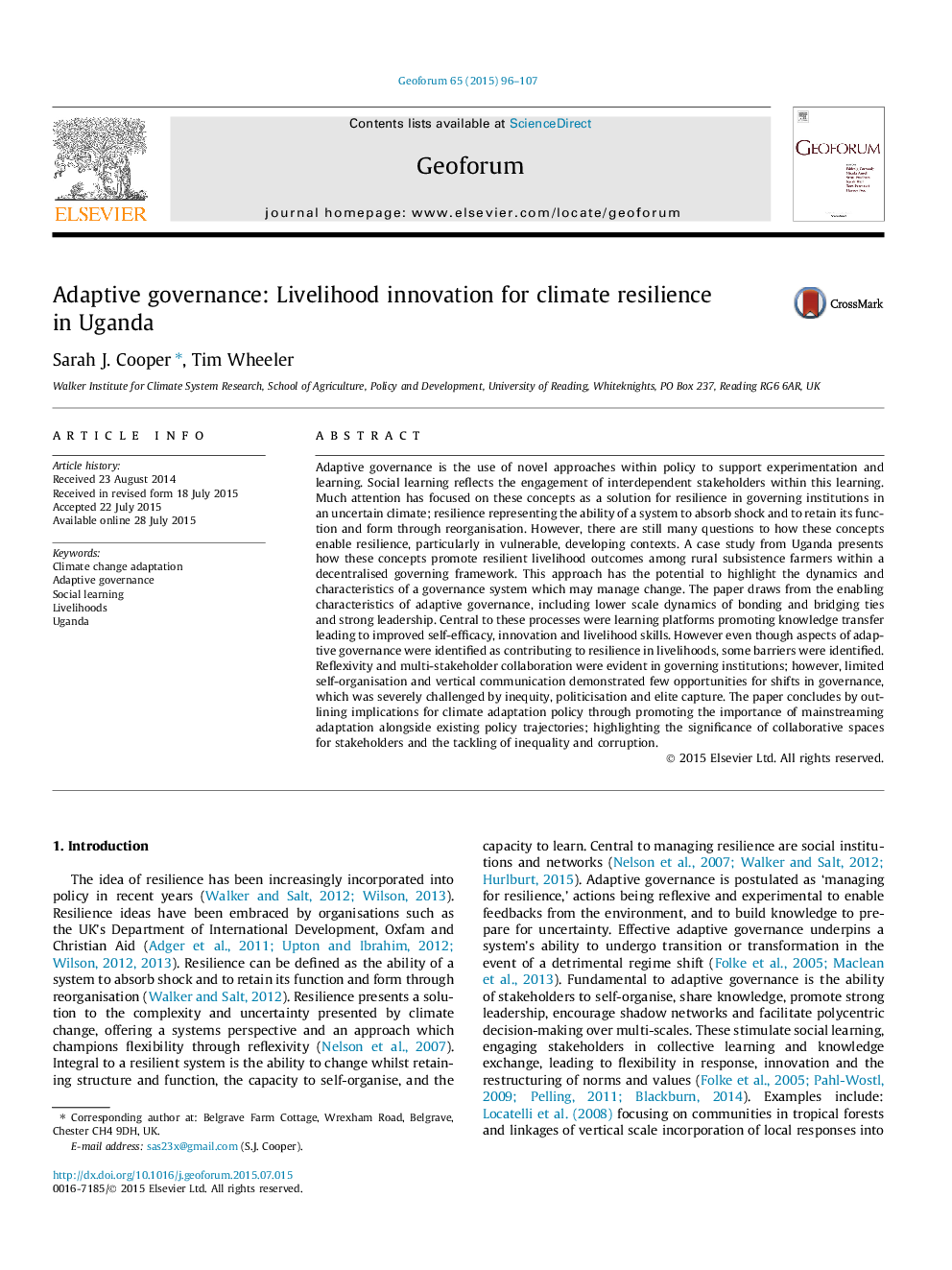| Article ID | Journal | Published Year | Pages | File Type |
|---|---|---|---|---|
| 5073796 | Geoforum | 2015 | 12 Pages |
â¢Formal institutions are instrumental in stimulating learning and innovation.â¢Informal institutions are fundamental for knowledge transfer at local scales.â¢Vertical interaction requires transparency and accountability.â¢Climate adaptation policy should be mainstreamed with other policy trajectories.
Adaptive governance is the use of novel approaches within policy to support experimentation and learning. Social learning reflects the engagement of interdependent stakeholders within this learning. Much attention has focused on these concepts as a solution for resilience in governing institutions in an uncertain climate; resilience representing the ability of a system to absorb shock and to retain its function and form through reorganisation. However, there are still many questions to how these concepts enable resilience, particularly in vulnerable, developing contexts. A case study from Uganda presents how these concepts promote resilient livelihood outcomes among rural subsistence farmers within a decentralised governing framework. This approach has the potential to highlight the dynamics and characteristics of a governance system which may manage change. The paper draws from the enabling characteristics of adaptive governance, including lower scale dynamics of bonding and bridging ties and strong leadership. Central to these processes were learning platforms promoting knowledge transfer leading to improved self-efficacy, innovation and livelihood skills. However even though aspects of adaptive governance were identified as contributing to resilience in livelihoods, some barriers were identified. Reflexivity and multi-stakeholder collaboration were evident in governing institutions; however, limited self-organisation and vertical communication demonstrated few opportunities for shifts in governance, which was severely challenged by inequity, politicisation and elite capture. The paper concludes by outlining implications for climate adaptation policy through promoting the importance of mainstreaming adaptation alongside existing policy trajectories; highlighting the significance of collaborative spaces for stakeholders and the tackling of inequality and corruption.
